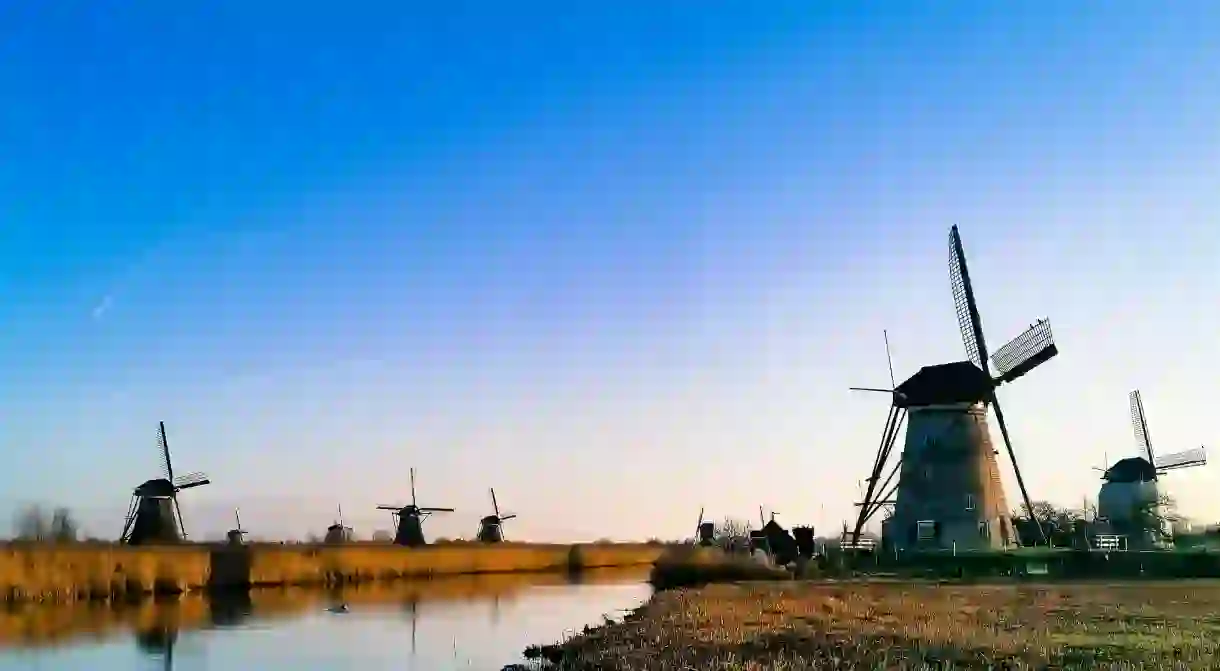10 Unique Experiences You Can Only Have in the Netherlands

Whilst finding awesome things do in the Netherlands is never difficult, thanks to hundreds of attractions inside the country, some experiences are slightly more extraordinary than others and completely unique to the Dutch homeland. To prepare eager travellers for their next trip to the Netherlands, Culture Trip has rounded up the most exciting, peculiar and fascinating activities on offer inside Dutch borders.
Ride a Bike Through the Rijksmuseum
Museum
Eat Fresh Stroopwafels
Architectural Landmark
Although commonly associated with Belgium, waffles are ubiquitous in the Netherlands and most Dutch supermarkets have whole aisles dedicated to these delicious, sugary treats. For a true Dutch delicacies, though, travellers should sample stroopwafels, rather than their thicker, Belgian counterparts. These chewy, syrup filled cookies are readily available throughout the Netherlands and most markets have at least one stroopwafel stall. Why stop there? Discover Amsterdams other delicacies with on of the many food tours available.
See 400 Year Old Windmills
Museum
The Dutch have a long a history with windmills and have employed these iconic machines to convert swamps into habitable or farmable land since the Middle Ages. There are still over 1000 windmills in the Netherlands, many of which date back to the height of milling technology in the 16th to 17th century.
Take a Bike Tour Through Tulip Fields
Historical Landmark

Due to the Dutch floriculture industry’s overwhelming success, tulip fields are never far away in the Netherlands. These beautiful farmlands usually divide their tulip fields according to color, creating a mesmerising sea of flowers. During springtime it is possible to visit many of these farms or simply look up their location and set off on a cross-country bike tour around their borders.
Celebrate King’s Day
On the 27th April the Netherlands goes totally nuts during a nationwide holiday called King’s Day (Koningsdag). Although the holiday was originally devised to honour the Dutch royal family, it eventually grew into a massive carnival-style party, complete with parades, concerts and a seemingly endless supply of beer.
Buy a Kroket or Frikandel From a Vending Machine
A few decades ago, Dutch fast-food chain FEBO developed an ingenious way to speed up service and began selling their wares via large, glass cabinets that resemble vending machines. By inserting change into these contraptions, customers are able to quickly and efficiently access the fried delights held within, such as meat-filled krokets or tasty, frikandel sausages.
Smoke Cannabis Semi-Legally
Despite the myths that surround Dutch cannabis laws, the drug isn’t actually legal in the Netherlands. Nonetheless, it is essentially decriminalised and available from hundreds of certified coffee shops, many of which allow their patrons to smoke inside.
Visit Islands That Are No Longer Islands
As around one third of the Netherlands is built upon artificial land (much of which was reclaimed from the sea) many former islands are now part of the Dutch mainland. The rustic fishing village of Urk, for example, was once completely surrounded by the Zuiderzee, but is now enclosed within Flevoland province, whereas Marken, in Noord-Holland, existed as an island for centuries, until a large causeway turned it into a peninsula.
Spot a Beaver Dam
Like wolfs and bears, beavers were hunted to extinction in the Netherlands before the turn of the 2th century. However, these adorable, aquatic mammals, were reintroduced into the southern Dutch countryside around two decades ago and have since developed several colonies throughout the Netherlands. Currently, the province of Tilburg has the largest concentration of beavers in the Netherlands and their numbers are steadily increasing elsewhere in the country.
Look Inside a De Stijl Masterpiece
Gerrit Reitveld was the first member of de Stijl to apply the group’s methods to three-dimensional design and created many ground-breaking items including his famed Red and Blue Chair. In 1924, Reitveld helped build a home for a wealthy socialite in Utrecht, which is now known as the Rietveld Schröder House. This breath-taking building is a standing testament to Rietveld’s ingenuity, genius and ability to adapt space around aesthetic principles. Today, the house is open to the public and protected as an UNESCO heritage site.













